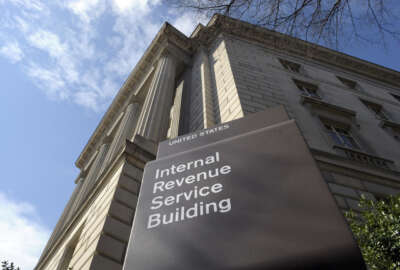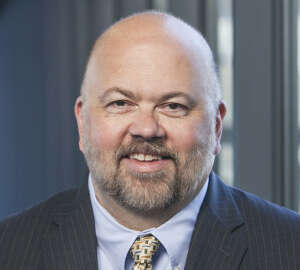
You still here?
All the experts who predicted a retirement tidal wave from government were wrong. Senior Correspondent Mike Causey explains why so many retirement-age feds are ...
I had a media friend who was very well known in the D.C. area until he retired and, for most people, disappeared. He said that when he ran into someone on the street who recognized him, they would nearly always say, “You look great,” which he took to mean “I thought you were dead!!!” He enjoyed retirement but missed being out of the limelight. And the people he worked with. In government, things are different …
Tens of thousands of folks who should by now (according to experts) be happy federal retirees are still toiling for Uncle Sam. Some happy. Some not. But most are still on the job despite at times hysterical predictions of an imminent and devastating retirement tsunami that would lower Uncle Sam’s IQ a lot. And show no signs of retiring. So what’s up? Last week, we asked feds how things were going, and why were they come to work every day when they could be sleeping late, traveling, avoiding rush hour and doing other things retirees do, or don’t do.
So what is keeping people in government past what most experts predicted would be their expiration date? Stand back.
” As to your questions: If you’re retirement-eligible, why haven’t you done it? Do you love your job? Are you afraid you won’t have enough income in retirement? Are you waiting for the economy to improve? I have my answer. Pay freezes.
“When I calculated when I could retire about 10 years ago, I used the retirement estimators commonly available online. In doing so, I estimated a modest but at least positive yearly raise, 2 percent to 3 percent. At the time that was as much if not less than we had currently been getting. Being maxed out in my grade (step 10), that was the only increase I was going to get short of a promotion. I was as high as I could go in my field in the government short of them raising my grade.
“In doing the calculations for retirement, I planned to retire when I became 55 or 56 with over 30 years in the government. But the recession and pay freezes (and extremely small raises), made me suspend my plans. I am CSRS, so the stock market did not affect my decision as much as the lack of raises. I therefore calculated that getting the 2 percent extra each year added to my retirement calculations for three or four years, would make up for the lack of raises. Of course then they also raised LTC (and it sounds like another round is coming) and FEHB keeps going up and the still small raises keep coming, all contributing to my annuity not being as large as I thought it would be 10 years ago.
“I always found it interesting when people who retired or are retiring would say that you should retire, because you get as much net in retirement as when working. Of course they were either single or were not taking a survivor annuity, for whatever reason and would not suffer the 10 percent hit on their pay. I will and therefore that is roughly five more years to work past eligibility. Of course threats of going to the chained-CPI are not comforting either.” — Still Plugging Away
“I am a government employee who could have retired years ago and there are other people in my office ages in the late 60s and early 70s still working. Why? The cost of living in Long Island, New York. Maybe couples with two incomes may be able to afford it but not us single people with only one income. No raises for three years and a shutdown didn’t help either. ” — Abdrea L
“Many if not most people now nearing retirement are covered under FERS instead of the old CSRS system. With FERS, the pension increases 10 percent (from 1 percent of high three to 1.1 percent) if you retire after age 62 with 20 or more years of service. If the retiree is within a few years of 20 years, age 62, it’s advantageous to wait until 62 to retire. That 1 percent to 1.1 percent could be hundreds of dollars per month, for life, and mostly COLA’d. Yet another form of “golden handcuffs”. …
“Picture a slowly rising graph, with a big jump at 62, and then slowly rising again.” — Jon L.
“Hi Mike — great column. We have corresponded before and yes, I’m still on the job here in Chicago. Last November (11/14/2015) was the 40th anniversary of my being sworn in on 11/14/1975. Why am I still here? I will paraphrase an old anecdotal story of a British Army Officer’s fitness report: ‘His men follow him only out of morbid curiosity.’
“Morbid curiosity — that’s why. What will happen next in the dumbest contest between the politicians, some of the executives here and the American people themselves (who keep reelecting the same politicians and wonder why nothing changes—nothing improves.).
“Truthfully, I have a difficult job that I am very good at and a great boss who is supportive to the point I wonder how much that has cost him. When he was down last month around my 66th birthday (we were opening a new case) he and our Area Manager (new to being an Area Manager but another of the rare great ones!0 presented me with my 40 year plaque. What they said about and to me in front of my colleagues really meant more than the handsome plaque. What I told my bosses and the crew was how I made it that long in a tough job where upper management some times did not support or understand. It’s simple. As an agent coming up through the ranks I learned about trust. The attorneys from IRS Chief Counsel and DOJ, fellow agents (including some of the best from IRS CID and Exam) as well as My various Group Managers and a Division Chief (we don’t have those anymore and we should) had my back. I knew this not by their words but by their actions. I have had many tricky and sometimes tricky assignments and I did them no questions asked because I knew they would never ask me to do anything that could bite me in the ass or was illegal. I told the kids (it’s probably safe to say I am one of the oldest agents in the field for my division) that that bond, that trust was the most important thing in the world — it’s what made me look fearless (and crazy?). This job — most jobs — require intelligence, the ability to make decisions, education, training and instinct but that trust—that bond is the most important of all.” — Jake
Lots more reasons. Lots more to come, But when you read some of these you begin to think Uncle Sam — and therefore the taxpayers — are lucky to have some of these “ancients” still on the job.
Nearly Useless Factoid
By Michael O’Connell
A 1-ounce serving of dry-roasted, unsalted peanuts has 7 grams of protein, while a similar serving of hazelnuts has just 4 grams of protein.
Source: National Peanut Board
Copyright © 2024 Federal News Network. All rights reserved. This website is not intended for users located within the European Economic Area.
Mike Causey is senior correspondent for Federal News Network and writes his daily Federal Report column on federal employees’ pay, benefits and retirement.
Follow @mcauseyWFED
Related Stories





